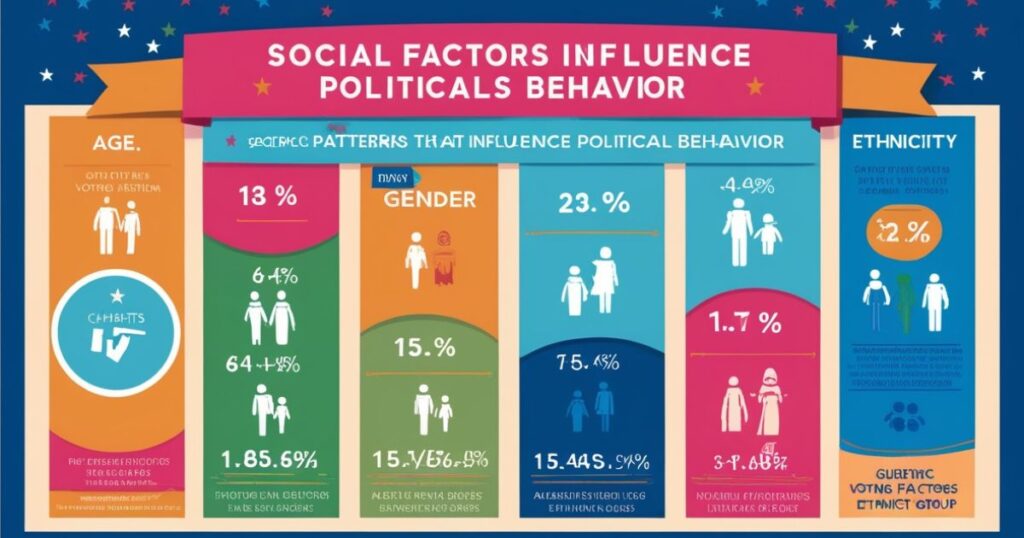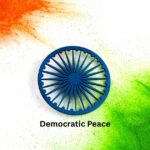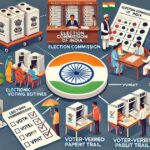Political sociology is a field that combines ideas from sociology (the study of society) and political science (the study of politics). It looks at how our society and social groups affect politics, like how people vote and decisions are made in governments. To understand political sociology, we should see it as both a science, which uses facts, and data and an art, which involves understanding people’s feelings and cultures.
What Is Political Sociology?
Political sociology studies how different social factors—like class, ethnicity (cultural background), gender, and religion—affect politics. Here are some definitions and key areas it covers:
Charles Tilly:
“Political sociology is the study of the relationship between social structures and political processes, examining how social forces shape political outcomes and how political events reshape social relations.”
David Held:
“Political sociology investigates the dynamics of power and authority in society, focusing on the interplay between social structures, political institutions, and individual agency in shaping political behaviour and governance.”
Theda Skocpol:
“Political sociology seeks to understand the connections between society and the state, emphasizing how historical and social contexts influence political action, institutions, and social movements.”

Political Behavior: This looks at how people vote, and participate in politics and their opinions.
Political Institutions: It studies organisations like parliaments, political parties, and government offices that help run the country.
Power Dynamics: This focuses on who has power, how they use it, and how it can change society.
Theoretical Frameworks:
Political sociology uses different theories to explain political events, including:
Structural Functionalism:
This theory suggests that every part of society works together to maintain order.
Conflict Theory:
This focuses on the struggles between different groups in society, showing how they compete for power and resources.
Symbolic Interactionism:
This looks at how people create meaning through their interactions, including in politics.
Political Sociology as a Science:
Using Research
Political sociology uses scientific methods to gather and analyze information. Here are some ways they do this:
Surveys and Polls:
These are tools used to collect data about what people think and how they vote.
Case Studies:
These are detailed examinations of specific events or issues to draw larger conclusions.
Statistical Analysis:
This involves using numbers and statistics to find patterns in political behaviour.
Objectivity and Rigor
As a science, political sociology aims to be objective, which means it tries to be fair and not biased. Researchers focus on facts rather than personal opinions. This makes their findings more credible.
Predicting Outcomes
Political sociologists create models to predict how people might vote or behave politically. This helps politicians and organizations understand trends and what to expect in the future.

Political Sociology as an Art
1. Interpretation and Context
While political sociology uses scientific methods, it also involves understanding feelings and contexts. This means:
Analysing Movements: Studying social movements, like protests, to understand their messages and goals.
Evaluating Policies:
Look at how government policies affect different groups of people.
2. Subjectivity and Emotion:
The art side of political sociology recognizes that emotions and personal experiences play a big role in politics. For example:
Cultural Narratives:
Stories and beliefs can shape how people see their political identity.
Symbolic Politics:
Understand how symbols (like flags or slogans) influence people’s feelings and thoughts about politics.
3. Diverse Perspectives:
Political sociology thrives on a mix of ideas. Engaging with different viewpoints helps create a fuller picture of political issues.
The Interplay Between Science and Art
1. Complementary Approaches:
Political sociology benefits from using both scientific and artistic methods. Data can show trends, while stories and emotions provide a deeper understanding. This combination helps us analyse complex political situations better.
2. Real-world Applications:
Understanding political sociology as both a science and an art helps people—like politicians, activists, and researchers—tackle real-world problems. For example:
Policy Formulation:
Making decisions based on research can lead to better policies for everyone.
Social Justice Advocacy:
Recognizing feelings and cultural aspects can strengthen efforts to promote fairness in society.
Conclusion:
Political sociology helps us understand the connection between society and politics.
By viewing it as both a science and an art, we can appreciate the complexity of political issues and engage thoughtfully with the world around us.
As political challenges continue to change, our study of these issues must adapt, combining facts with an understanding of human experience.
FAQs:
1. What is political sociology?
Political sociology is the study of how social factors—such as class, ethnicity, gender, and religion—affect political behaviour, power dynamics, and governance. It examines the relationships between society and politics.
2. Why is political sociology considered both a science and an art?
Political sociology is considered a science because it uses empirical research methods and data analysis to study political behaviour.
It is also an art because it involves interpreting cultural and emotional aspects of politics, and understanding how people’s feelings and identities influence their political views.
3. What methods are used in political sociology research?
Researchers in political sociology use various methods, including surveys and polls to gather quantitative data, case studies for in-depth analysis, and statistical analysis to identify patterns in political behaviour.
4. What are some key theories in political sociology?
Some key theories include:
Structural Functionalism: Focuses on how different parts of society work together to maintain order.
Conflict Theory: Examines the struggles between different groups for power and resources.
Symbolic Interactionism: Look at how individuals create meaning through their interactions, including political symbols and practices.
5. How does political sociology influence real-world issues?
Political sociology helps inform policymakers, activists, and researchers about social dynamics that affect political outcomes.
By understanding how social factors influence behaviour, stakeholders can create more effective policies and advocate for social justice.
6. Can political sociology help in predicting voting behaviour?
Yes, political sociology uses models and data analysis to predict voting behaviour based on demographic factors.
These predictions can help political strategists and policymakers anticipate trends and changes in public sentiment.
7. How does understanding political sociology benefit individuals?
Understanding political sociology can empower individuals by helping them recognize the social influences on their political beliefs and behaviours.
This awareness can lead to more informed participation in the political process and greater engagement in social issues.
8. What role do emotions play in political sociology?
Emotions are significant in political sociology as they influence people’s political attitudes and actions.
Understanding how emotions, beliefs, and cultural narratives shape political identities is crucial for analyzing political behavior.










